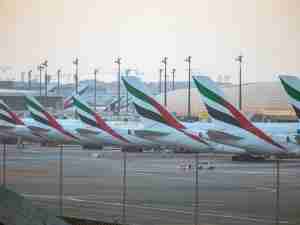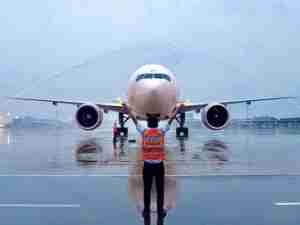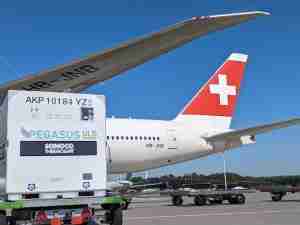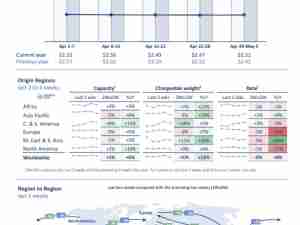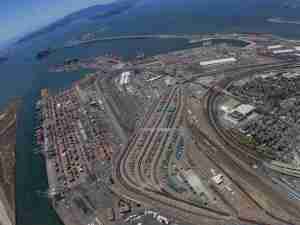Airports, public authorities must finally act in due consideration of air cargo interests
posted by AJOT | Apr 07 2016 at 10:06 AM | Air Cargo
Air cargo in Germany is in an equally difficult and crucial phase regarding the sector’s future. If action is not taken soon, the location Germany is at risk of losing further substantial market shares to foreign countries, followed by serious consequences for economy, trade, mobility and jobs. “Public authorities, politics and airport operators are encouraged to finally take measures that contribute to successfully counteracting this negative trend”, demanded Michael Hoppe on occasion of the World Cargo Symposium 2016 in Berlin. Michael Hoppe is General Secretary of the Board of Airlines Representatives (BARIG) in Germany, the association of around 100 international airlines operating in Germany.
According to numbers released by the federal statistical office in February 2016, air cargo capacities dropped by 0.2 percent last year. Losses were especially significant in the field of imported goods which decreased by 0.8 percent compared to the previous year. The decline in Germany is accompanied by growth in global air cargo in 2015, the IATA attested an increase by 2.2 percent compared to the previous year. Michael Hoppe states, “the signs of the times must be acknowledged immediately. The air cargo location Germany does not only face strong competition from neighbouring countries but also from airports situated far away for example in Asia Minor and in Arabic nations.”
In BARIG’s opinion there are three major areas in which framework conditions for air cargo business in Germany must be sustainably improved and altered in order to be more competitive. Number one is the high burden created by fees and taxes which affects airlines greatly and is reflected in their transport prices. In addition to the high air traffic taxes and the air security fees, the airport and flight control fees are just as burdening. The second aspect is the complex bureaucracy in Germany.
BARIG’s members experience again and again that they have to deal with more complicated and time-consuming administrative processes in Germany compared to other countries. Registration and approval procedures for a cargo charter directed to a German airport often take several days longer although regulations and responsibilities are similar. In this particular field BARIG calls for a significant improvement of the cooperation between airlines, airports and authorities.
Lastly area number three concerns the infrastructure and its usage. Major and generally important construction projects related to air traffic in Germany such as the third runway at Munich Airport must not be further delayed according to BARIG. Moreover, as intended with Dusseldorf’s initiated request for a capacity expansion,already existing infrastructure should be used in an improved and more intense manner. For an efficient implementation it remains to be vital that a coordinated planning takes place and the users of the infrastructure – the airlines – are involved in the planning of suchlike projects.
SOURCE: BARIG
